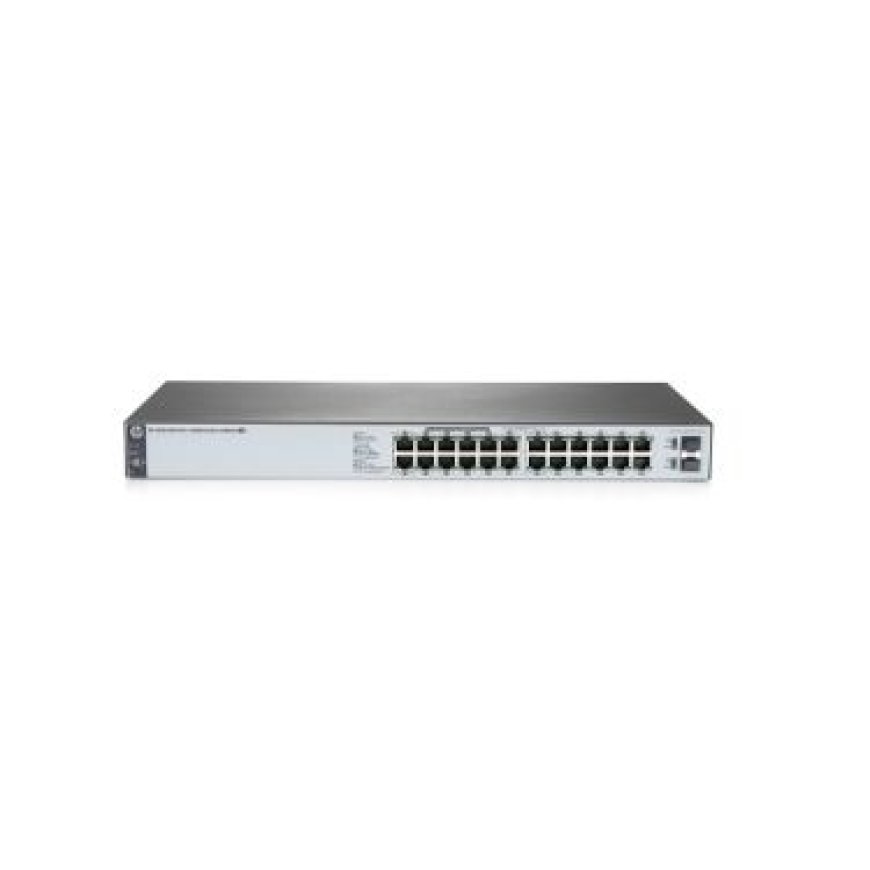The Ultimate Guide to Choosing the Best Network Switch for Small Businesses

In today’s fast-paced digital age, small businesses rely heavily on seamless connectivity to power their operations. Whether it’s ensuring smooth communication, enabling data sharing, or powering connected devices, a robust network infrastructure is indispensable. At the heart of this infrastructure lies a critical component: the network switch. For small businesses aiming to maximize performance and scalability without overspending, choosing the right network switch can be daunting.
This guide from BulkDevices is here to help you navigate the complexities and make an informed decision. Let’s dive deep into the essential factors, features, and specific recommendations to consider when selecting the best network switch for your business.
What is a Network Switch?
A network switch is a device that connects devices within a local area network (LAN). Unlike a hub, which broadcasts data to all connected devices, a switch intelligently directs data only to the specific device it’s intended for. This efficiency enhances performance, reduces network congestion, and ensures smoother data flow.
Types of Network Switches
-
Unmanaged Switches
-
Ideal for small setups with minimal configuration needs.
-
Plug-and-play functionality.
-
Affordable and user-friendly but limited in advanced features.
-
-
Managed Switches
-
Offer advanced controls, monitoring, and configuration options.
-
Enable Quality of Service (QoS), VLANs, and security settings.
-
Suitable for growing businesses needing scalability and control.
-
-
Smart Switches
-
A middle ground between unmanaged and managed switches.
-
Provide basic management features like VLANs and port monitoring.
-
Affordable with decent flexibility.
-
-
PoE (Power over Ethernet) Switches
-
Combine data and power over a single cable.
-
Ideal for devices like IP cameras, VoIP phones, and wireless access points.
-
Key Considerations When Choosing a Network Switch
1. Number of Ports
The number of devices you plan to connect will dictate the required number of ports. Common configurations include 8, 16, 24, and 48-port switches. For a small business, an 8 or 16-port switch might suffice initially, but planning for growth is advisable.
2. Speed and Performance
-
Fast Ethernet (10/100 Mbps): Suitable for basic networking tasks.
-
Gigabit Ethernet (10/100/1000 Mbps): Recommended for most modern small businesses due to faster data transfer speeds.
-
10-Gigabit Ethernet: Best for high-performance applications but often more expensive.
3. Scalability
Future-proofing your investment is critical. Opt for a switch that supports additional connections, stacking, or expansion to accommodate business growth.
4. Managed vs. Unmanaged
While unmanaged switches are cost-effective and simple, managed switches offer greater control and security, which are vital for growing businesses with complex networking needs.
5. Power over Ethernet (PoE)
If your business utilizes VoIP phones, security cameras, or Wi-Fi access points, a PoE switch can save costs and simplify installation by reducing the need for separate power cables.
6. Brand and Warranty
Stick to reputable brands that offer reliable products and customer support. Look for extended warranties to ensure long-term peace of mind.
Recommended Network Switch for Small Businesses
For small businesses looking for a reliable and feature-rich option, the HP J9983A is an excellent choice. This 24-port Gigabit Ethernet switch strikes the perfect balance between performance, scalability, and cost-efficiency. It comes with essential management features, making it ideal for small to medium-sized setups.
Additional Tips for Choosing the Right Switch
-
Assess Current Needs and Future Growth Conduct an audit of your current network setup and consider how your business might expand in the next 3-5 years. This will help you avoid over-investing now or under-preparing for growth.
-
Understand VLANs and QoS If your business deals with critical applications like video conferencing or VoIP, prioritize switches that support VLANs (Virtual Local Area Networks) and QoS (Quality of Service). These features ensure efficient bandwidth allocation.
-
Check Power and Cooling Requirements Ensure the switch’s power consumption aligns with your office’s power supply. Additionally, some switches require proper ventilation or cooling to avoid overheating.
-
Consider Security Features Advanced managed switches offer robust security features, including port authentication, encryption, and denial-of-service protection, essential for safeguarding sensitive business data.
Conclusion
Choosing the best network switch for your small business is not merely about technical specifications; it’s about aligning the switch’s capabilities with your business needs and goals. Whether you’re starting with an unmanaged switch or investing in a managed, PoE-enabled device like the HP J9983A, prioritizing scalability, performance, and security is crucial.
At BulkDevices, we understand the unique networking challenges faced by small businesses. Our extensive range of high-quality networking equipment ensures you find the perfect fit for your setup. Reach out to us for expert guidance and solutions tailored to your business needs.
Build a network that grows with your business—because connectivity is the backbone of success!
What's Your Reaction?





























